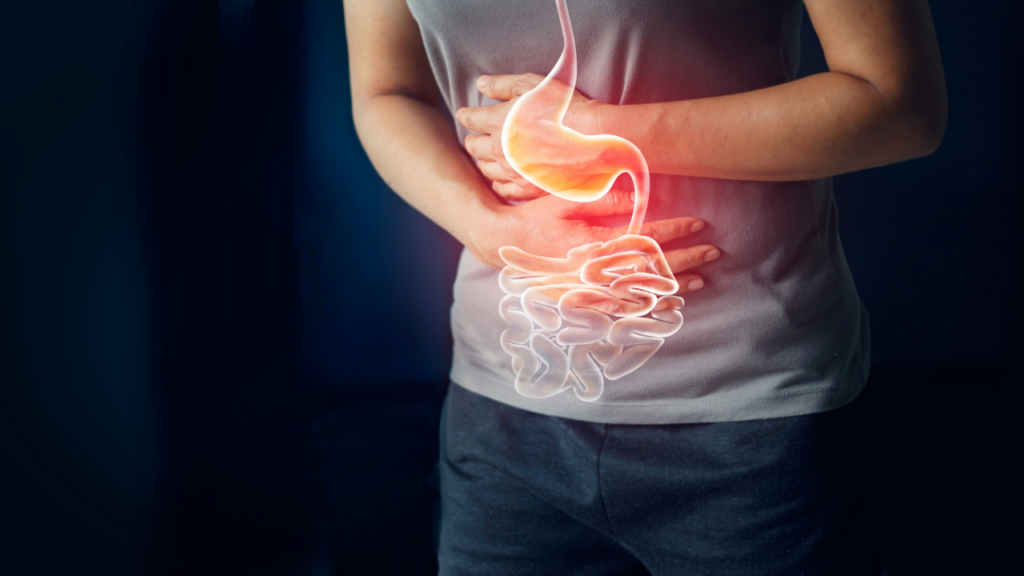Exercise Daily – On a daily basis, fluttering in lower abdomen female might have something to say. Your belly might experience a variety of different tugs and twists, pulls, and plucks feelings. Even if the majority of them are entirely normal, there may be an odd movement or sensation that stands out.
In this post, we’ll look at what causes you to feel movement in your lower abdomen and how you may prevent it.
We’ll start with the more apparent reasons, such as pregnancy and digestive issues, before moving on. We’ll also take a look at some of the less frequent reasons, as well as when unexpected movement might be an indication of something more serious.
Movement in lower abdomen when pregnant
Pregnancy is a time of learning and experiencing new things. One of them is the turmoil that is now occurring in your belly. As infants grow, their movements, no matter how small, might become more noticeable to the person who is carrying them.
The phrase “quickening” is used to describe the flutters and feelings of movement that pregnant women experience. The majority of individuals will have their first fetal movements between 16 and 25 weeks of pregnancy. This occurs throughout the second trimester of pregnancy.
If you are in the third trimester, you should be experiencing frequent periods of movement as fluttering in lower abdomen female. In future pregnancies, you may be able to feel those movements sooner since your body has become more used to them.
Nevertheless, the timing of movements might vary from person to person and pregnancy to pregnancy. Check with a home maternity test if you’re pregnant and fluttering is a result of it.
What your movements might imply if you’re expecting a child?
If you see movement when you’re pregnant, your baby may be one of these:
- Hiccupping
- Doing a U-turn
- Extending the limbs
- Flexing
- Kicking
Maternity Support Garments to Help the Fluttering Sensations
Belly Bands
Breast-feeding belly bands are flexible tube-like coverings that women wrap around their stomachs. As the belly grows, they function as a protective barrier, covering skin that becomes exposed due to the expansion.
Some belly bands give slight compression and may also provide some support to the hips and lower back.
Belly bands are available in a variety of sizes, styles, colors, and patterns. They are often embellished with elastic or rubber trim to assist keep them from bunching together.
Belly Belts
Belly belts are rigid belts that women wear around the belly. These provide support for the lower back, pelvis, hips, and abdomen during pregnancy. They are also known as maternity belts.
Belly belts are normally worn on top of clothing. They help to flutter in lower abdomen females. However, some individuals choose to wear them under their clothes. When compared to belly bands, belly belts are often narrower and more strap-like in design.
Maternity Cradles
Prenatal or maternity cradles are made of a belly belt that wraps around the lower body and an upper strap that extends over the top of the belly to support the baby when the mother is pregnant. These two pieces come together to provide a cradle for the stomach.
While certain pregnant cradles are available for purchase as a stand-alone item. They are most often found as an add-on to belly belts or in combo packs with them.
When it is possible that you may need medical attention?
Movement in your abdomen is typical and anticipated throughout pregnancy, and it is most likely normal. Other feelings in your abdomen, on the other hand, may indicate the presence of a prospective issue in the future.
If you see any of the following signs and symptoms, don’t put off seeing your doctor until your next appointment. Call your doctor immediately!
- Diarrhea that is severe
- Feeling dizzy or fainting
- A temperature greater than 100°F (37°C)
- When peeing, you may have discomfort or burning, or you may have difficulty urinating
- Bleeding from the Cervix
- Untypical vaginal discharge, such as grey or white discharge with a bad odor
- You may be experiencing blurred vision or seeing spots in your eyes
- Nipples that are broken and bleeding
- You may have swelling in your hands, face, or fingers
- Headaches that be continuous and severe
- Discomfort in your arms, chest, or legs
Fluttering in Lower Abdomen Female When Not Pregnant
Women who are not pregnant may also feel strange movements or sensations in the lower abdomen. These sensations might be triggered by common bodily activities such as digestion. Even gas or indigestion might be the source of the problem.
Understanding the most probable source of these movements will assist you in determining if they need treatment or whether they may necessitate a visit to the doctor.
Digestion
When you consume anything, the muscles in your digestive system begin to contract. This allows the food to pass through your stomach and into your intestines more quickly. You may see these muscles contracting shortly after eating, or you may not notice them moving for many hours.
Indigestion
Indigestion is the polar opposite of proper digestion. It may result in the following symptoms:
- Heartburn
- Nausea
- Discomfort in the stomach
- Bloating
- Vomiting
A gnawing feeling in the stomach, which might seem like muscular action, is a less frequent symptom to encounter.

Antacids, which are available over the counter, may be used to treat indigestion at home. However, if you are experiencing persistent indigestion, or if you begin to have severe vomiting, black stools, or unexplained weight loss, you should consult with a healthcare professional.
Ovulation
During a menstrual cycle, you may experience a wide range of sensations and experiences such as fluttering in lower abdomen female. As your period approaches, cramps may cause the muscles in your lower abdomen to feel tighter and more painful. This may seem to be a movement.
In addition, you may feel hops or pops in your lower abdomen while you are ovulating. Most of the time, this is caused by the ovary expanding in order to release the mature egg. Usually, this feeling is modest and only lasts for a short period of time.
Muscle spasms
Spasms in the abdomen are similar to muscle spasms in the arms or legs as they may occur anywhere in the body. Muscle tension or misuse may result in these involuntary contractions, which can be painful. However, they may also be an indication of dehydration.
The majority of muscle spasms are moderated and will subside on their own in a few minutes. Talk to your doctor if you’re still experiencing them, or if they’re becoming worse and becoming severe.
They may wish to investigate if there are any contributing reasons for the muscular spasms.
Phantom kicks
People who have just given birth may have phantom kicks or the sense that a baby is in their belly. This sensation is most prevalent immediately after birth, although some individuals report it even years after the event.
Similarly, women who have had a miscarriage or abortion may also be affected by this feeling and feel fluttering in lower abdomen female.
Also read: Pain Under Bra Line During Pregnancy
Symptoms of an allergic response
In rare cases, an abdominal fluttering or twitching sensation may indicate that your digestive system is suffering an allergic response to anything you ate. Celiac disease or an aberrant response to gluten are two conditions that might cause these symptoms.
It is rare, but it can occur. Avoiding gluten-containing meals may help avoid these movements as well as any other symptoms associated with celiac disease.

These may include the following:
- Abdominal bloating or discomfort
- Diarrhea that doesn’t go away
- Constipation
- Vomiting
- A reduction in body weight
- Obstruction of the intestines
After leaving your stomach, digested food particles travel through a complex network of intestines and organs before passing out of your body as feces. It is possible for that digestive pathway to get obstructed.
The obstruction may be partial or complete, depending on the circumstances. Muscle cramps that seem like they are moving may occur when the blockage develops, among other symptoms.
Other signs and symptoms of an intestinal blockage are as follows:
- Bloating that is extreme
- Nausea
- Vomiting
- Constipation
- Uncontrollable bloating and constipation
When an intestinal blockage occurs, it is important to get it recognized and treated by a doctor as soon as possible. No amount of home therapy will be effective in removing the fluttering in lower abdomen female because of an allergic reaction.
Diverticulitis
Diverticulitis is a digestive system illness that affects the intestines. Bloating, diarrhea, and constipation are some of the unpleasant effects that occur as a result of it. This condition may also result in abdominal discomfort and muscle spasms.
Diverticulitis may cause symptoms such as the following if left untreated:
- A feeling of nausea and vomiting
- Feces with blood
- Abdominal discomfort that is persistent
- Rectal bleeding
If you are experiencing any of the symptoms listed above, you should schedule an appointment with your doctor.
Anxiety and Stress
Anxiety and stress are typical reasons for fluttering in the abdomen. This is quite commonly referred to as having butterflies in your abdomen. It often occurs when a fight-or-flight response is experienced by your body.
Due to stress and worry, stress hormones are produced in the body. The central nervous system is triggered by these hormones which lead to the fluttering of abdominal muscles.
You may minimize stress and anxiety by obtaining appropriate sleep, exercising frequently, conducting meditation, eating a well-balanced diet, talking to a family or friend, and reducing the use of alcohol and caffeine. This might help with lowering the incidence of fluttering in lower abdomen females.
Frequently Asked Questions
Can you feel fluttering and not be pregnant?
It is possible to experience those mysterious baby kicks even if you have never been pregnant before. What is causing this occurrence is still up in the air, according to the experts.
Gas, rumbling in the intestines, or even uterine irritation might be the cause of the pain and discomfort. It is not a cause for concern, as it normally fades away on its own after a while.
Why do I feel movement in my lower abdomen but not pregnant?
Several typical motions in a woman’s body may be mistaken for the kicks of a baby. Gas production, muscular contractions, and peristalsis (the wave-like movements of intestine digesting) are all examples of this.
Can you feel flutters at 4 weeks?
Mothers who have had previous pregnancies may notice movement as early as 13 weeks. If you notice something fluttering about in your abdomen around this time, it’s probable that your baby is dancing around within you. Quickening is another term for the baby’s kicks.
Where do you feel pregnancy flutters?
As your pregnancy continues, you’ll notice various types of kicks from your baby, including fluttery motions below the belly button. This is early in the pregnancy and stronger movements may vary from high in your ribcage to down in your pelvic area.
Can gas bubbles feel like baby movements?
You will begin to feel the movement of your baby anywhere between 18 and 22 weeks of your pregnancy. For the time being, these little motions are seen as fluttering or “butterflies.” Some ladies have described themselves as feeling like gas bubbles.
Take Away
It’s not uncommon to feel fluttering in lower abdomen female. A growing fetus may produce sudden jolts and jabs in the body. This condition may also occur as a consequence of regular digestion, muscular spasms, or the ovulation process.
Even while a more severe problem such as intestinal blockage is not a prevalent cause of abdominal movement, the feeling might be a symptom of the condition.
Make an appointment with your doctor if the sensation of movement in your abdomen becomes persistent or if you begin experiencing other symptoms.
Even if it is the consequence of indigestion, a doctor may assist you in finding relief from your symptoms. If the feeling is caused by anything else, therapy may be effective in preventing the symptoms from becoming worse.



